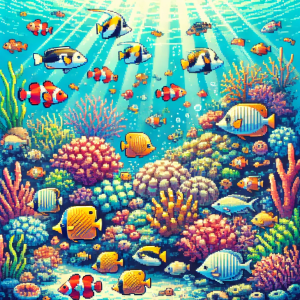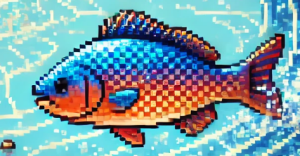
Next Week in Science, July 25, 2025
We’ve been on vacation this week, so I haven’t really been following any breakthroughs that might have “broken through”. One interesting thing down here at the beach is how many stars you can see.
Actually, let me take that back. You can see a “fair” amount of stars, but what you can really see is satellites. I think I counted 10 in about 20 minutes last night, not including the ISS. There sure is a lot of stuff floating around the Earth.
Here’s what’s rising in science research.

And here’s what’s been in the news.

And since we’ve been beach-y, here’s something weird that’s been in the news.
Some Australian dolphins use sponges to hunt fish, but it’s harder than it looks
In Shark Bay, Australia, a small subset of dolphins use sponges on their noses as a unique hunting technique to protect their beaks while foraging on the seafloor for fish. New research indicates this “sponging” behavior, passed from mother to calf, disrupts the dolphins’ echolocation abilities, requiring them to compensate for the sound distortion caused by the sponge. This rare behavioral adaptation, practiced by only about 5% of the local dolphin population, illustrates the complex cultural transmission of skills in dolphin communities and highlights the intricacies of their hunting strategies.



